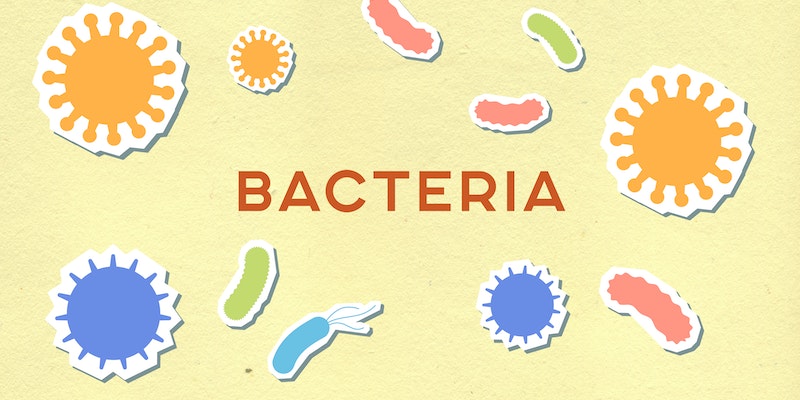Psoriasis: Foods to Embrace and Avoid
Oct 01, 2023
Psoriasis is a severe autoimmune skin illness with red, scaly areas. Heart disease, diabetes, and inflammatory bowel disease often accompany it. Several diets are popular with patients seeking treatment. The carnivore diet, detox diet, and food-based treatment of psoriasis are examples.
The association between nutrition and psoriasis is unclear, but diet can affect flare-up intensity and frequency. Below, we discuss psoriasis-friendly and dangerous foods.
Beneficial Foods in a Psoriasis Diet
1. Fatty Fish
When addressing inflammation through diet, fatty fish stands as a champion. Salmon, mackerel, and sardines, rich in omega-3 fatty acids, are essential to psoriasis diets. Omega-3 fatty acids reduce inflammation, which may help psoriasis. They help regulate the immune system, which is necessary for autoimmune psoriasis. Including fatty fish in your meals a few times a week can make a significant difference in managing inflammation and promoting overall skin health.
2. Fruits and Veggies with Antioxidants
The brilliant colors of blueberries, cherries, spinach, and kale are more than simply pretty. Antioxidant-rich foods prevent psoriasis-causing oxidative stress. Inflammation from oxidative stress harms cells, tissues, and organs. Consuming antioxidant-rich foods may help your body fight psoriasis-related inflammation.
3. Whole Grains
Whole grains like oats and brown rice are essential for gut health and psoriasis management. Fiber-rich meals speed digestion, improve gut microbiota and reduce inflammation. A balanced gut can indirectly contribute to working psoriasis symptoms due to the solid gut-skin connection, making whole grains a valuable addition to a psoriasis diet.
4. Nuts and Seeds
Flaxseeds, chia seeds, and walnuts contain omega-3s. Nuts and seeds strengthen anti-inflammatory defenses, improving psoriasis. They are adaptable and can be added to meals to increase critical fatty acid consumption.
5. Lean Proteins
Proteins are the building blocks of our bodies, and choosing suitable sources is essential. Lean proteins such as poultry offer essential nutrients without contributing to unnecessary inflammation. Opting for lean cuts, preferably organic or free-range, ensures you receive high-quality protein, supporting skin health and overall well-being.
6. Probiotic-Rich Foods
A proper gut microbiota is crucial for controlling autoimmune diseases like psoriasis. Probiotic-rich yogurt, sauerkraut, and other fermented foods promote intestinal health. The ongoing research in this field is promising, suggesting that enhancing gut flora can positively reduce psoriasis symptoms.
Foods That Might Trigger Psoriasis Flare-Ups
1. Processed Foods
Processed foods laden with unhealthy fats, sugars, and salts are notorious for exacerbating inflammation. These foods can disrupt the body’s natural balance, contributing to inflammatory responses that may lead to psoriasis flare-ups. Steering clear of overly processed products and opting for whole, unrefined foods can aid in maintaining a balanced, inflammation-conscious diet.
2. Red Meats
Red meats, especially non-grass-fed or processed ones, cause inflammation. Reduced red meat intake, mainly processed sausages and deli meats, can help psoriasis patients. Leaner protein or plant-based foods can assist in maintaining a balanced, anti-inflammatory diet.
3. Dairy Products
Dairy products can be a double-edged sword. While they offer essential nutrients, they may also exacerbate psoriasis symptoms for some individuals. It’s not a universal trigger, but exploring alternatives like almond or oat milk can be worthwhile for those sensitive to dairy. Monitoring your body’s response and adjusting accordingly is key when including dairy in a psoriasis diet.

4. Refined Sugars
Sugar, especially in refined forms, is a known inflammatory agent. Excessive intake can spike blood sugar levels, triggering an inflammatory response that may aggravate psoriasis. Being mindful of sugar intake, opting for natural sweeteners, and focusing on a balanced diet can help manage the potential impact of sugars on psoriasis.
5. Nightshades
Nightshades, a family of plants including tomatoes, peppers, and potatoes, can be problematic for some individuals with psoriasis. While not universally applicable, some people report worsening symptoms upon consuming these foods. Identifying individual triggers and making dietary adjustments is crucial in personalizing a psoriasis diet.
6. Alcohol
Alcohol can dehydrate the body, potentially contributing to skin dryness and irritation. For some individuals, excessive alcohol consumption might also trigger psoriasis flare-ups. Moderation is essential, and for those who notice a correlation between alcohol intake and symptom severity, reducing consumption can be beneficial.
Examining Specific Diets for Psoriasis
1. Carnivore Diet Psoriasis Approach
As the name implies, the carnivore diet focuses on consuming animal products exclusively, eliminating all plant-based foods. Proponents argue that it reduces inflammation, thus benefiting conditions like psoriasis. However, long-term studies on the carnivore diet psoriasis benefits are limited. While some anecdotal evidence supports its effectiveness, consulting with healthcare professionals before making such a significant dietary change is crucial.
2. Psoriasis Detox Diet
The idea behind the psoriasis detox diet is to eliminate toxins from the body that might contribute to flare-ups. This approach usually involves cutting out processed foods, sugars, dairy, and sometimes gluten. There's some evidence that a detox approach can be beneficial, but ensuring that the body still receives all necessary nutrients is essential. Again, professional guidance is crucial.
3. Treating Psoriasis with Diet: An Overall Perspective
The overarching idea of treating psoriasis with diet focuses on anti-inflammatory foods while reducing or eliminating potential triggers. It's not about strict adherence to a single diet but understanding the foods that benefit or harm individual needs.

Conclusion
Diet and psoriasis have a complex relationship. While certain foods might help alleviate symptoms, others could worsen them. Whether exploring the carnivore diet psoriasis approach, the psoriasis detox diet, or any other dietary change, it’s essential to do so under the guidance of health professionals.
Moreover, everyone’s body is different. What works for one might not work for another. So, paying attention to the body’s signals and preparing for a trial-and-error process when adjusting dietary habits is essential.
Focusing on nutrient-dense, anti-inflammatory diets and avoiding triggers can help psoriasis patients. Remember that nutrition is only one element of psoriasis management and treatment.





